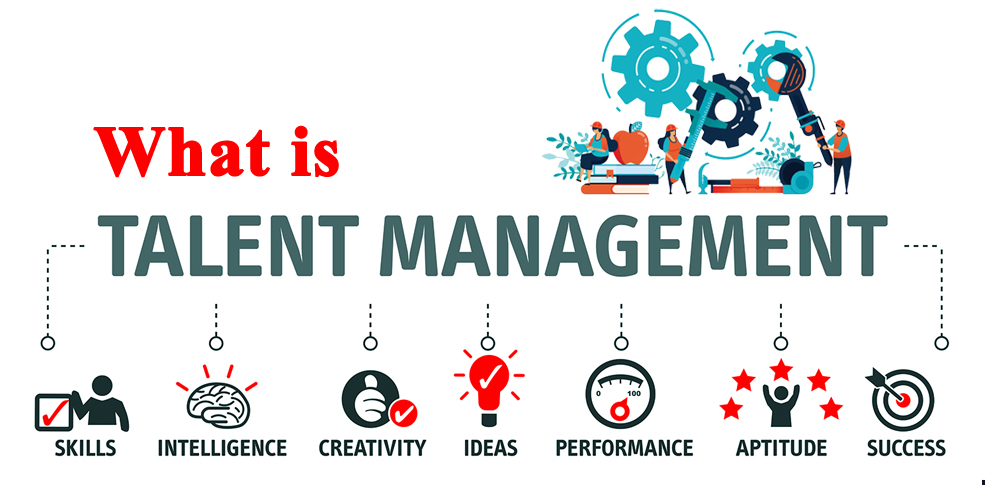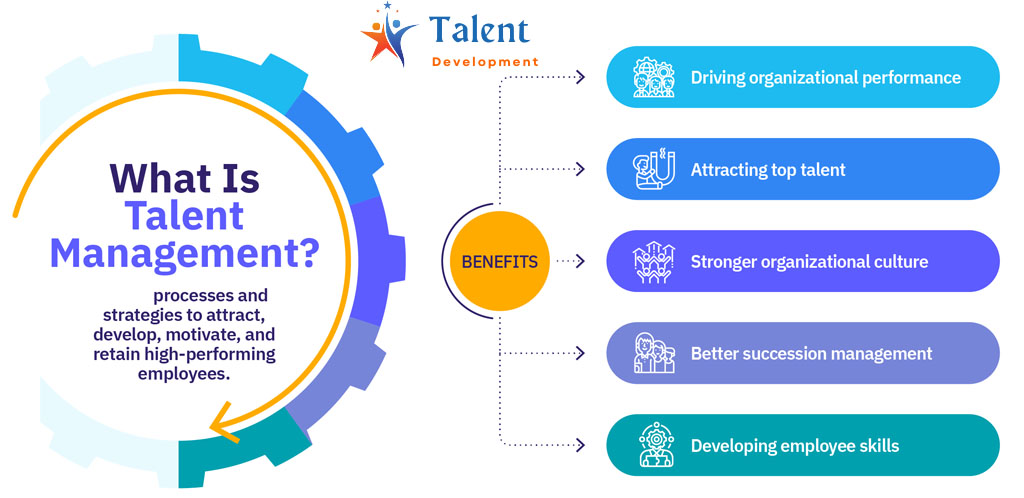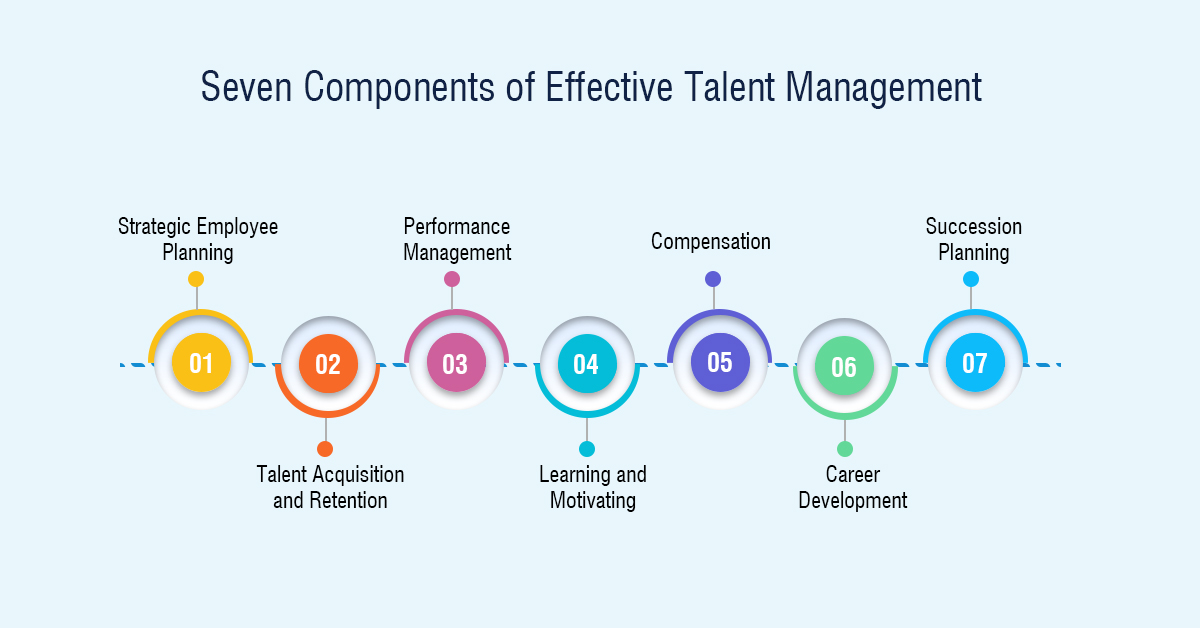
Talent development isn’t a one-size-fits-all term, and the larger an organization, the more complex its talent development initiatives tend to be. The primary challenge is to stay focused on bringing out the best in each employee while addressing diverse learning and development (L&D) needs.
Talent Development Program: Nurturing Potential Across the Organization
What Is a Talent Development Program?
A talent development program involves implementing initiatives to nurture employees’ growth. This could cover areas such as:
- Career Development
- Leadership Development
- Succession Planning
- Training and Skill Enhancement

These broad categories encompass various L&D aspects, including mindfulness, adaptability, communication, innovation, teamwork, and accountability.

Steps to Building a Talent Development Program
Creating a robust talent development program involves several key steps:
1. Identify Candidates for Talent Development Opportunities
Use performance reports, manager and employee recommendations, HR interviews, and other assessments to identify employees who show promise. Recognizing the strengths of existing staff can help maximize their potential and improve retention rates.
2. Align Company Goals with Talent Development Needs
Collaborate across different organizational levels to set priorities based on the company’s talent needs. A skills gap analysis can help identify critical areas, such as leadership development for future growth or communication skills for customer service improvement. Establish goals and benchmarks to measure progress and assess the quality of the program.
3. Match Individuals with Tailored Development Plans
After identifying promising employees, assign them to relevant programs. For example, someone with strong managerial skills may benefit from a leadership development course, while a great communicator might receive mentorship to further enhance that skill.
4. Design the Program
Depending on the resources available and the complexity of the skills being developed, the program could range from a few hours to several months. A roadmap should be created, detailing materials, instructors (including mentors and external experts), schedules, and milestones. Employees should be aware of the potential outcomes, such as increased compensation, promotions, or enhanced skills.
5. Monitor and Evaluate Progress
A dedicated staff member should oversee the program’s progress, and periodic check-ins should be conducted to gauge the program’s effectiveness. Even if the program appears successful, mid-course and final evaluations are essential to measure achievements and identify areas for improvement.
Why Is Talent Development Important?
McKinsey emphasizes that companies should adopt a “Talent + Productivity = Value” approach. Organizations that prioritize talent in their business strategies often achieve higher total shareholder returns compared to their competitors. Effective talent development addresses skill gaps, boosts employee engagement, enhances productivity, and reduces turnover.
Real-World Examples of Talent Development Programs
Many organizations, from small businesses to large corporations, have established talent development programs that stand out:
- Delta Airlines uses an employee-driven learning platform where courses are tailored based on feedback. The Leadership365 program, for example, helps employees build leadership skills.
- Johnson & Johnson fosters a growth mindset with its “J&J Learn” program, offering over 100,000 courses for employees to customize their learning plans.
- Adobe invests in various development programs to stay competitive, including external education funding, mentorship, and internal promotion opportunities. Programs like the “Executive Shadow” for women and “Leader Experience” for self-paced learning are notable examples.


Addressing Common Challenges in Talent Development
Organizations often struggle to implement effective talent development programs due to:
- Difficulty understanding individual development needs
- A focus on senior-level development at the expense of others
- Rapidly evolving skill requirements and a lack of L&D experts
- Ineffective evaluation methods, which allow outdated programs to persist
How Talent Development Can Help
Talent Development’s platform provides solutions to these challenges by using technology to break down vague L&D requirements into specific, manageable areas. The platform’s scalability allows for organization-wide implementation, reaching many employees instead of just a select few.
Once L&D needs are defined, Talent Development connects organizations with a global network of highly-rated coaches, mentors, and trainers, ensuring the right experts deliver the training. After the program concludes, Talent Development offers intuitive evaluation tools to assess both the program’s impact and the instructor’s effectiveness. This feedback loop helps improve future programs and maintain the quality of the expert network.


About Talent Development
Talent Development is transforming employee learning and development through a technology-driven, scalable approach that adapts to organizations of any size. If you’re ready to see the full potential of what an L&D program can do for your business, get in touch with us today.
Talent Development LMS, as a specialist in Learning and Development (L&D), understands the importance of equipping educators for success. Our employee learning and development solutions support all aspects of employee performance, including recruiting, onboarding, employee engagement, succession planning, and continuous improvement. We offer solutions like Talent Development Software, LMS for colleges, LMS for schools, LMS for corporations, and LMS for businesses, ensuring organizations have the tools they need to create a culture of learning and development. As the market evolves, Talent Development LMS remains committed to empowering organizations to adapt and thrive by providing comprehensive solutions that cater to diverse learning needs across industries.

